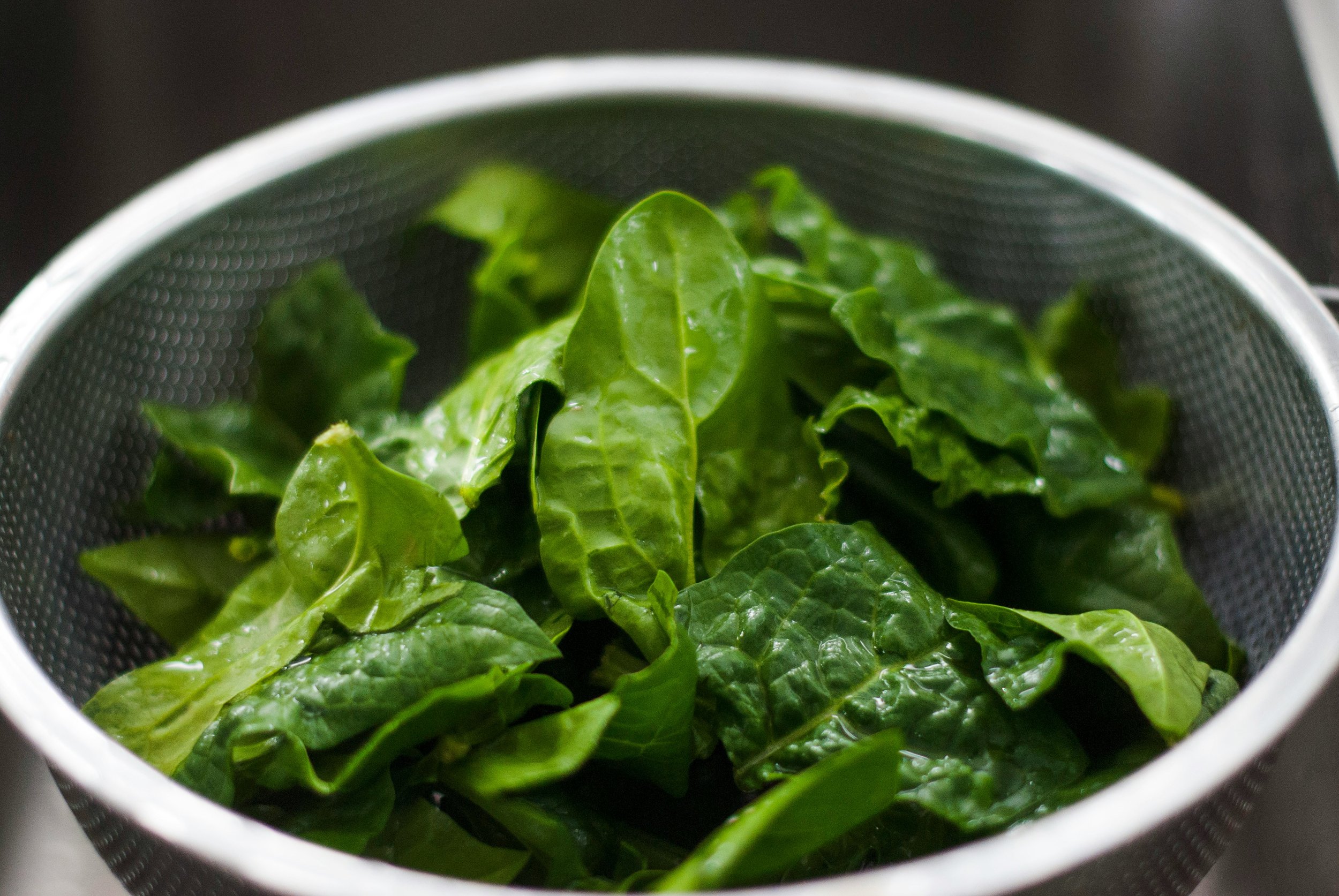Feasting Your Eyes: The Nutritional Blueprint for Vision Vitality
In the complex weave of factors that shape our health, the role of nutrition stands out as essential, yet often overlooked, especially when it comes to supporting our vision. The link between the foods we eat and the well-being of our eyes is profound, deserving more attention than it typically receives. At Shades Optical, we're dedicated to spotlighting this crucial connection, embracing both the rich wisdom of ancient dietary practices and the breakthroughs of contemporary science to nurture our eyes in the most natural way possible.
We're stepping beyond the common advice on vitamins and minerals, exploring the world of lesser-known nutrients and age-old dietary wisdom that have been enhancing vision for centuries.
Shades Optical is committed to a holistic view of eye care, where nutrition plays a central role. We believe in empowering our clients with knowledge and strategies that go beyond conventional eye care, integrating the very best of ancient insights and modern discoveries. As we prepare to dive deeper into the unique nutrients and practices that form the foundation of our approach, we invite you to join us in rethinking how diet can illuminate the path to optimal visual health.
The Unseen Heroes of Eye Health
Astaxanthin: The Super Antioxidant
Astaxanthin, a carotenoid known for its vibrant red-orange pigment, has emerged as a powerhouse in the realm of antioxidants, surpassing the well-acknowledged benefits of vitamins C and E in combating oxidative stress. Found in microalgae, salmon, krill, and shrimp, astaxanthin offers profound protective properties for the eyes. Its ability to cross the blood-retinal barrier allows it to provide direct antioxidant support within the eye, safeguarding the retinal tissues from the damaging effects of sunlight and reducing eye fatigue commonly exacerbated by prolonged screen exposure. The benefits of astaxanthin extend beyond mere protection; studies have demonstrated its role in enhancing visual acuity and reaction time, making it a critical nutrient for maintaining not only the health but also the functionality of the eyes.
Anthocyanins: Night Vision’s Ally
Anthocyanins, the pigments that give dark berries their rich colors, have been celebrated for their health benefits, particularly for eye health. These powerful antioxidants are found in abundance in bilberries, blackcurrants, and other darkly colored fruits, contributing to enhanced night vision and reduced eye fatigue. Historical anecdotes recount pilots in World War II consuming bilberry jam to sharpen night vision, a testament to the longstanding belief in the power of anthocyanins. Modern scientific studies have validated these benefits, showing that anthocyanins improve blood flow to the eye’s vessels, thereby supporting visual acuity and protecting against oxidative stress. By strengthening the capillaries that deliver nutrients to the eyes, anthocyanins play a vital role in maintaining optimal vision in low-light conditions and reducing the risk of fatigue-related visual impairment.
Selenium: The Antioxidant Enhancer
Selenium, a trace mineral essential for the body’s antioxidant defense system, plays a pivotal role in eye health. This nutrient aids in the production of glutathione peroxidase, an enzyme that protects the eyes from oxidative damage. Selenium’s importance is highlighted by its effectiveness in enhancing the body’s ability to absorb and utilize other antioxidants, thereby amplifying their protective effects on the eyes. Foods rich in selenium, such as Brazil nuts, seafood, and eggs, offer a natural pathway to bolstering the eye’s defenses against conditions like cataracts and macular degeneration. Furthermore, selenium works in synergy with vitamins E and C, providing a multiplicative effect in reducing oxidative stress and inflammation within the eye. This collaborative action underscores the importance of a balanced diet rich in diverse nutrients to maintain and enhance eye health, showcasing selenium as a critical yet often overlooked component of the nutritional blueprint for vision vitality.
Bridging Ancient Wisdom and Modern Science
Dietary Practices from Ancient Civilizations
Long before the advent of modern medicine, cultures around the globe recognized the significance of diet in maintaining overall health, including vision. Traditional Chinese Medicine (TCM) and Ayurveda, two of the world's oldest holistic healing systems, have extensively documented the use of specific foods and herbs to support eye health. TCM emphasizes the balance of Qi (energy) within the body, prescribing foods like goji berries, rich in zeaxanthin and lutein, to nourish the liver, which is believed to be closely linked to eye health. Similarly, Ayurveda advocates for a diet rich in ghee and Triphala, a herbal blend known to improve vision clarity and protect against eye diseases. These ancient practices, grounded in centuries of observation and experience, provide valuable insights into the role of diet in sustaining eye health, offering a complementary perspective to modern nutritional science.
The Evolutionary Perspective on Diet and Vision
The concept of an ancestral diet, or a diet that closely mimics the eating habits of our pre-agricultural ancestors, presents another lens through which to view the relationship between nutrition and vision. Proponents of the evolutionary diet argue that the modern departure from whole foods toward processed, nutrient-poor options has contributed to the rise in vision and health issues. Ancestral diets were rich in omega-3 fatty acids from wild-caught fish, antioxidants from fresh fruits and vegetables, and other nutrients essential for maintaining healthy vision, such as Vitamin A from organ meats. By adopting a whole-foods approach that emphasizes nutrient-dense, minimally processed foods, we can potentially reclaim some of the protective benefits our ancestors enjoyed, supporting not only eye health but overall well-being.
The Synergy of Nutrients
Modern science is revealing how different nutrients, when combined, can greatly benefit eye health. Studies highlight that omega-3s mixed with antioxidants like lutein and zeaxanthin notably lower the risk of diseases such as age-related macular degeneration. This points to the power of a holistic dietary approach, where nutrient synergy plays a key role in enhancing eye health beyond the capabilities of single nutrients. Merging ancient dietary insights with current scientific knowledge offers a well-rounded strategy for eye wellness. This blend not only deepens our understanding of how nutrition supports eye health but also emphasizes the need for a comprehensive dietary approach. Embracing both historical wisdom and modern findings, we can create a nutritional plan that truly supports our vision's vitality.
Revolutionary Food Sources and Preparation Tips
The quest for optimal eye health extends beyond traditional dietary staples to include a plethora of unconventional foods rich in essential nutrients. These unique sources offer a novel approach to nourishing our eyes and enhancing our vision. Furthermore, understanding the impact of food preparation on nutrient bioavailability can significantly enhance the effectiveness of our dietary choices.
Optimizing Nutrient Absorption Through Cooking
Food preparation methods significantly impact the absorption and availability of vital nutrients. Consider spinach: high in lutein but also containing oxalic acid, which hinders mineral absorption. Cooking spinach reduces this acid, making lutein more accessible to the body. Cooking techniques matter too; steaming or sautéing preserves more nutrients than boiling, which can lead to nutrient loss. These cooking insights help us enhance the nutritional value of our meals, benefiting eye health and overall wellness. By exploring new food sources and adopting effective cooking methods, we can bolster our diet with essential nutrients, ensuring we gain the full spectrum of benefits for our eyes and health.
Incorporating These Insights Into Your Lifestyle
Adopting a diet that supports eye health doesn't have to be a challenge. Start by incorporating a variety of nutrient-dense foods into your meals to cover a broad spectrum of essential vitamins and minerals. Opt for a colorful plate – the different colors in fruits and vegetables represent various nutrients that are beneficial for eye health. Simple swaps, like choosing leafy greens rich in lutein and zeaxanthin or snacking on nuts and seeds for omega-3s, can make a significant difference. Remember, diversity in your diet ensures you’re getting the wide range of nutrients your eyes need to stay healthy.
Conclusion
Exploring the nexus between diet and eye health reveals a world of opportunities to enhance vision through nutrition. Beyond conventional advice, delving into unique nutrients, ancient wisdom, and the latest scientific findings enriches our understanding of eye care. Shades Optical remains committed to pioneering a holistic approach, merging the best of nutritional science and traditional practices to support your vision and overall well-being.
Ready to tailor your diet to your unique eye health needs? Schedule a consultation with Shades Optical today. Our personalized advice, grounded in the latest research can help you unlock the full potential of nutrition for eye health. Embrace a comprehensive approach to eye care with us – Book your consultation and take the first step towards optimal vision and wellness.


